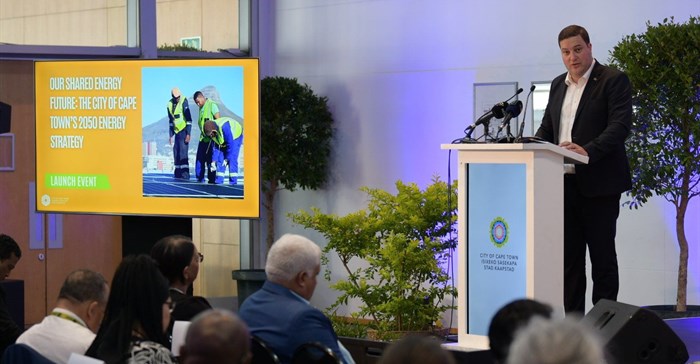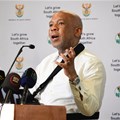
Cape Town mayor Geordin Hill-Lewis used the opportunity to criticise national government.
The Cash for Power programme is one of several initiatives that the city is pursuing to diversify its electricity supply, reduce its dependence on Eskom, the state-owned utility that has been plagued by mismanagement and corruption, and transition to a more sustainable, clean-energy future.
Other initiatives include:
Power Heroes: a voluntary programme for households and small businesses that enables remote switching of power-hungry appliances such as geysers and pool pumps to avoid a full stage of load-shedding.
Embedded independent power producers (IPPs): the city is procuring up to 700MW of renewable energy from private sector suppliers through tenders and wheeling agreements, which allow third parties to sell electricity to each other using existing grid infrastructure.
City-owned small-scale embedded generation (SSEG): the city is installing solar PV panels at its own facilities, such as the Atlantis plant and the CTICC, to generate up to 20MW of power.
The city’s Energy Strategy, which was formally adopted on at the same event, sets out a roadmap to 2050, including short-term plans to protect against the first four stages of Eskom load-shedding by 2026, and long-term goals to alleviate energy poverty, optimise energy use, and support the uptake of electric vehicles.
Criticised Ramaphosa
Hill-Lewis said that the strategy was driven by the need to boost economic growth and job creation, which have been severely hampered by the frequent and unpredictable power cuts that have affected the country for the past 17 years.
He also criticised President Cyril Ramaphosa for failing to deliver on his promises to end load-shedding and reform the energy sector, saying that Cape Town could not wait for the national government to fix the crisis.
"We must do so ourselves," he said.





































